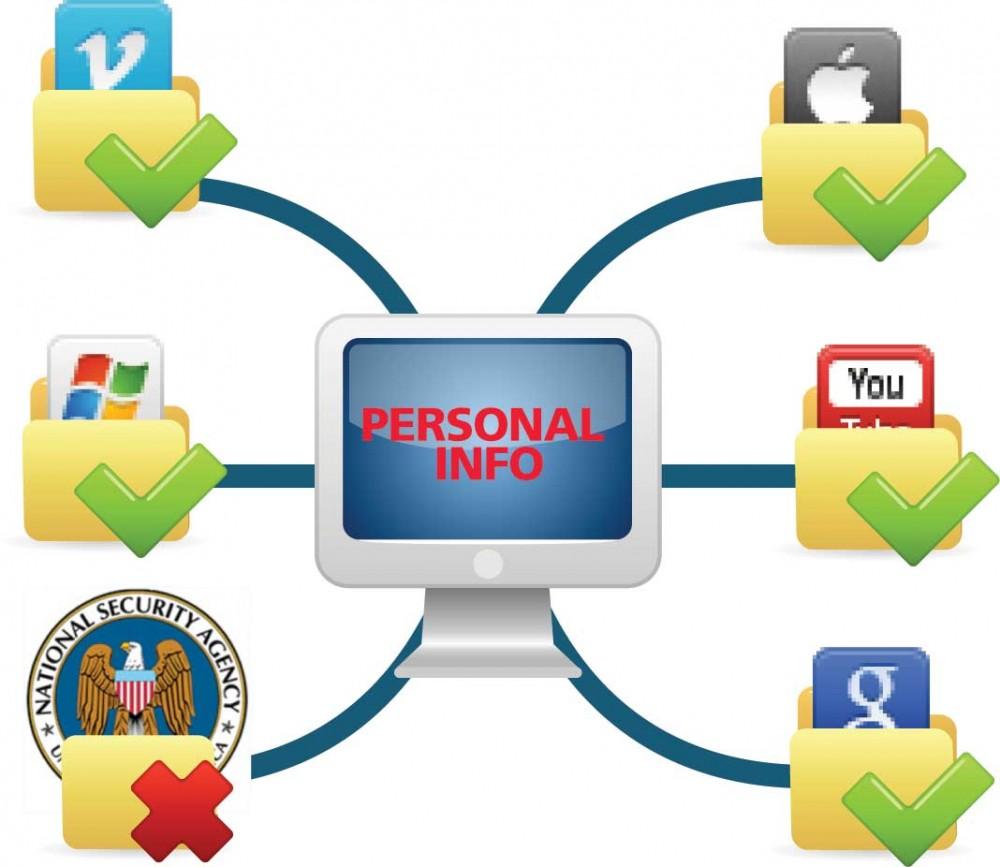
Illustration Credit: Joey Teravella
The convenience of the Internet came with a cost — the disintegration of privacy.
Edward Snowden faces espionage charges for exposing anti-terrorism programs run by the National Security Agency that show logs of U.S. calls and emails sent through major internet companies, according to the New York Times.
When it comes to judging Snowden’s act, U.S. officials said revealing information about U.S. surveillance programs is damaging to national security, according to ABC News. But others dub Snowden a hero, claiming it is a person’s right to know if their emails or phone calls are being monitored. Sixty percent of Americans within the 18-29 age group said Snowden performed a public service by exposing this information, according to a Pew Research Center and USA Today poll.
Regardless of how Snowden is judged, this should be a wake-up call about the falsity we face concerning Internet privacy. News of our emails and other Internet outlets being monitored should come as no shock in our technology-centered society.
Fifty-two percent of Americans thought the government should not be able to monitor emails and other online activity for public security, according to a Pew Research Center and Washington Post poll.
Isn’t this ironic, though, considering the personal information we practically throw into the hands of large corporations? The thought of the government using online information to protect us seems unsettling, yet our online activity is used by businesses everyday — and not for our safety, but as a way of increasing their revenue.
Greg Sterling, founder of Sterling Market Intelligence, said people don’t realize how much online advertising and data collection are interconnected.
In order for advertisers to appeal to the right audience, information about their potential customers is crucial. Contrary to what it may seem, the Facebook News Feed isn’t one giant collection of activity. The advertisements that appear on your homepage are tailored to a user’s interests, which they’ve so generously listed in their profile. The “friends” Facebook suggests we add to our “close friends list” is associated with the number of times we interact with this person online, activity Facebook presumably monitors.
Americans gave away online privacy to advertisers long ago, said Eric Gibbons, Director of Sales at Tap Commerce. This should come as no shock — we don’t pay a fee to join media outlets, and nothing is ever free.
Any outlet we communicate through, even Google, links back to a host that is collecting a plethora of files about us, according to Time. This means we’re freely sharing information about ourselves, such as whom we’re talking to, what we’re doing, what we’re searching, if we’ve ever shopped online and our credit card number.
So why is it okay that corporations make a profit off of our information, but the thought of the government monitoring our information for the sake of safety is intolerable?
Sterling offers one solution to those who are bothered by the invasion of Internet privacy: Opt out. Don’t use the Internet.
But we’re too entrapped to even consider this a possibility, let alone a solution. Smartphone users check their Facebook almost 14 times a day, according to the Business Insider. Habits like this are tough to break.
Internet may facilitate communication, but not at a small cost. With increased dependency on the Internet, the concept of privacy is disappearing. This doesn’t make Snowden’s actions ethical, nor does it make it okay for businesses to use our information as a moneymaker, but this hypocrisy is ignorant and unbecoming of us as a society. If you can’t live without the Internet, know the risks you’re taking.
Email Noor Ashouri at reporter10@unfspinnaker.com







